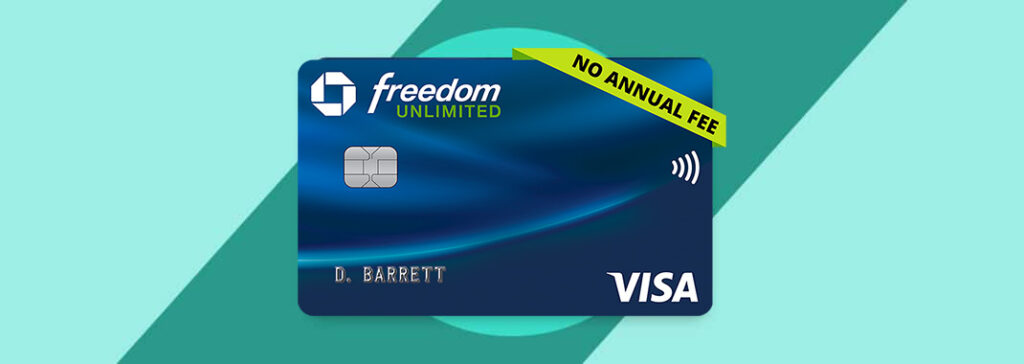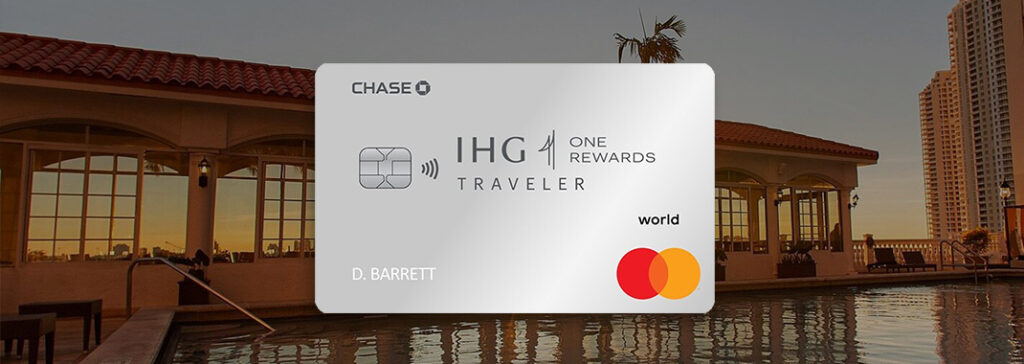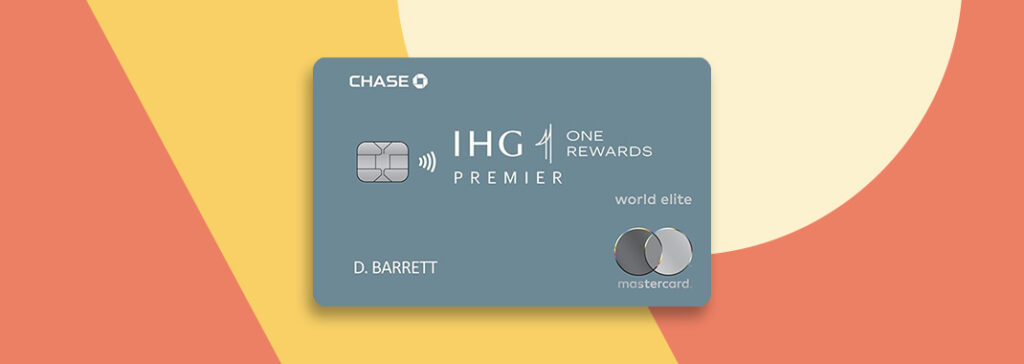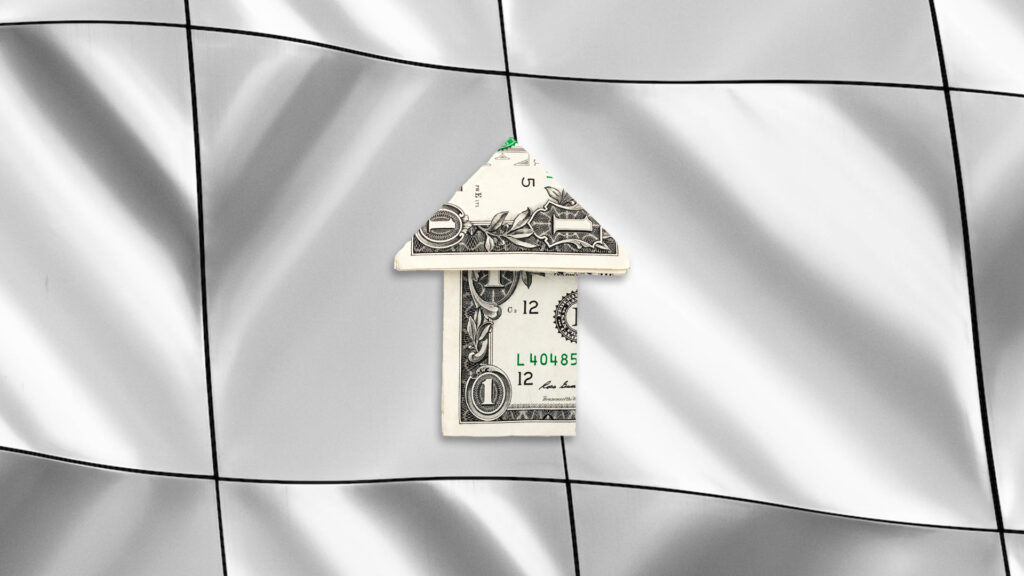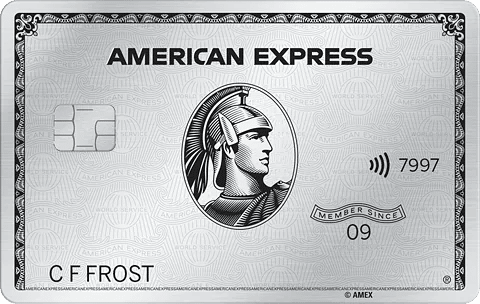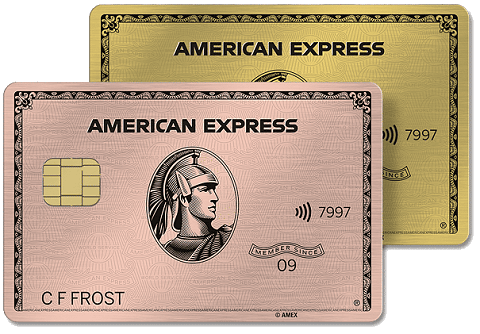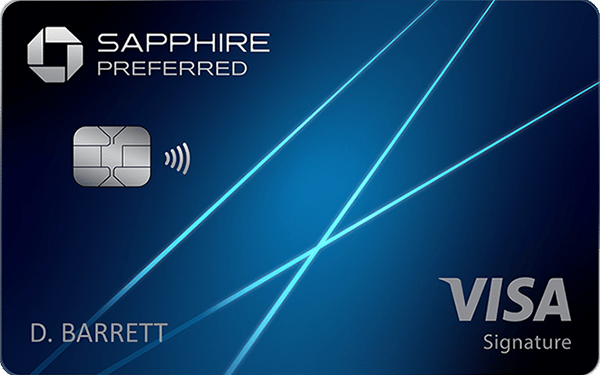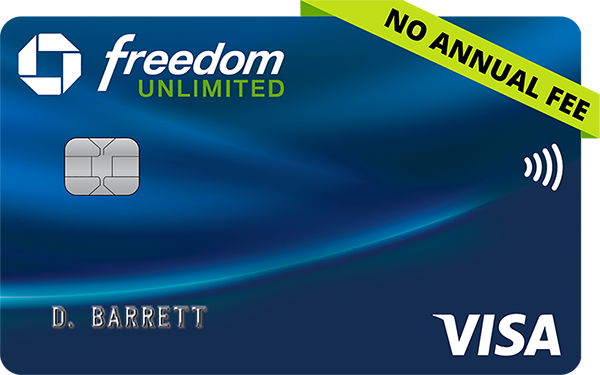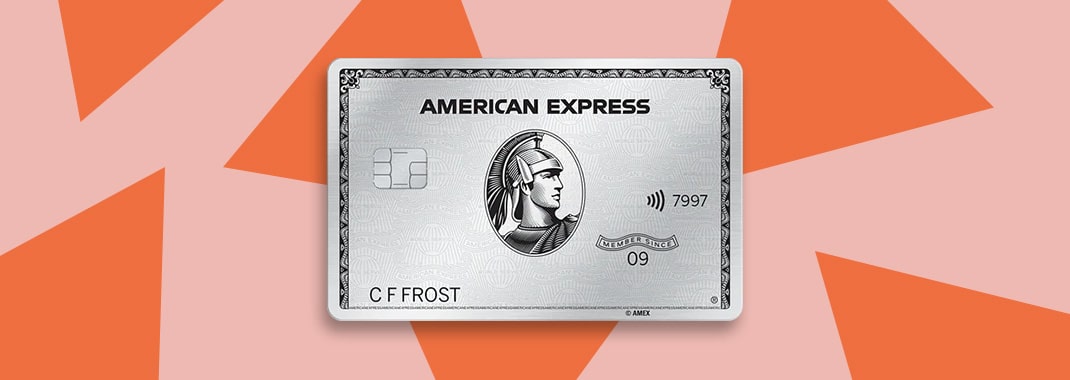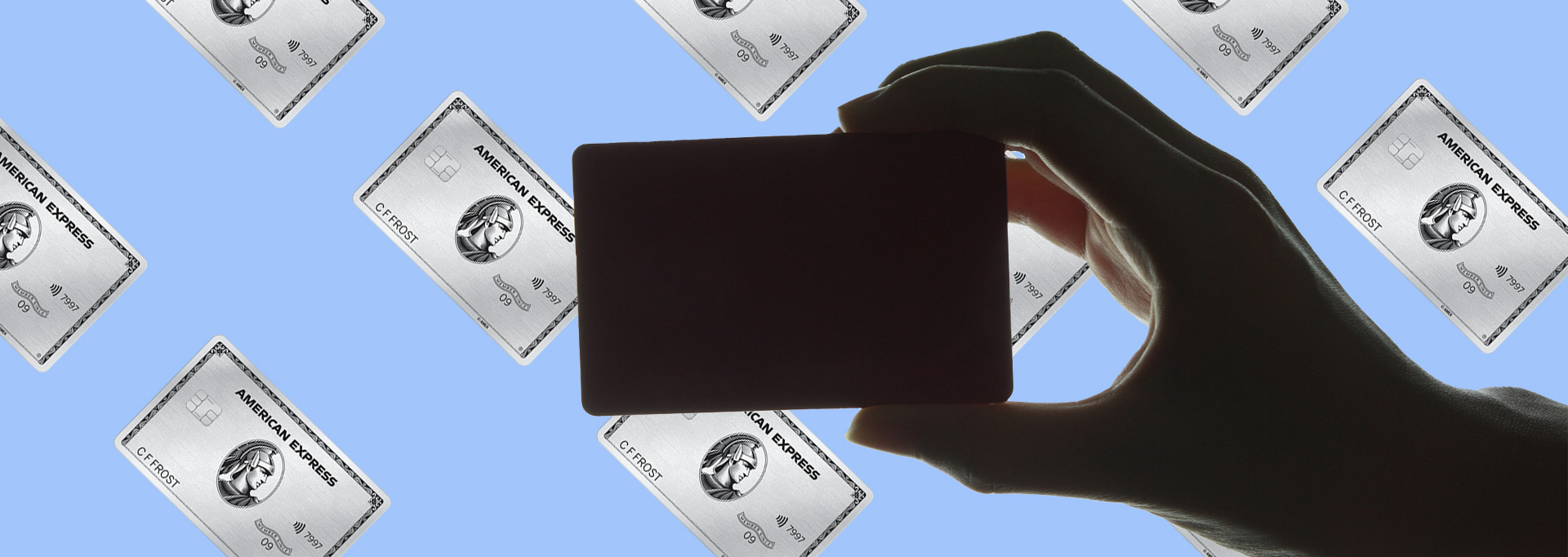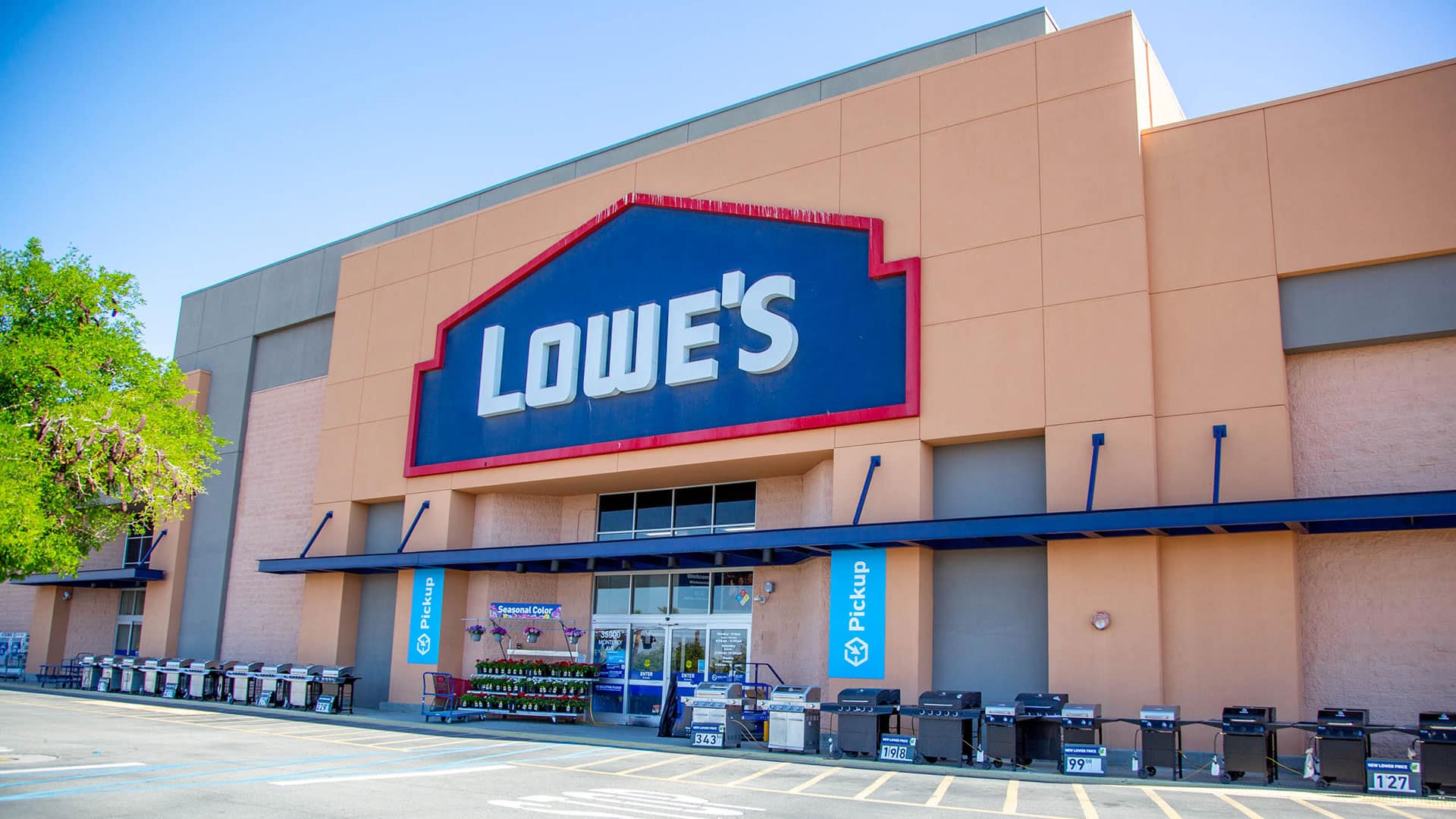Most products on this page are from partners who may compensate us. This may influence which products we write about and where and how they appear on the page. However, opinions expressed here are the author's alone, not those of any bank, credit card issuer, airline or hotel chain.
All information about the Chase Freedom Flex was collected independently by Slickdeals and has not been reviewed by the issuer.
Chase Ultimate Rewards® and the American Express Membership Rewards® programs both provide flexible rewards, primarily for travel. But depending on your travel habits and how you want to use your rewards, one may be better than the other.
Here's a guide to help you understand both the benefits and drawbacks of each program and how to determine which is the better fit for you.
Comparing the Two Rewards Programs

On the surface, Amex points and Chase points have a lot in common. You can redeem your hard-earned rewards in a variety of ways, including travel, cash back, shopping and more. You can also transfer your Amex Membership Rewards or Chase Ultimate Rewards points to a number of airline and hotel loyalty programs for potentially more high-value redemptions.
But when you dig deeper into the details, you'll notice that there are some significant differences in redemption values, transfer partner options, earning rates and more. Here's what you should know if you're trying to decide which program to go all-in with.
Earning Rewards
Both the Amex Membership Rewards program and the Chase Ultimate Rewards program offer a handful of cards that you can use to earn rewards. While most of these cards offer bonus categories, some provide a flat rewards rate on all of your purchases.
American Express Membership Rewards Cards
Some cards that offer opportunities to earn Amex Membership Rewards include:
American Express® Gold Card The Platinum Card® from American Express Amex EveryDay® Credit Card Amex EveryDay® Preferred Credit Card American Express® Green Card
Some of these cards come with enticing welcome offers along with bonus points for certain spending categories. Examples of such cards include the
The Platinum Card® from American Express
- Our Rating 4.5/5 How our ratings work
- APRSee Pay Over Time APR
- Annual Fee$695
-
Welcome Bonus
80,000Membership Rewards Points
Earn 80,000 Membership Rewards® Points after you spend $8,000 in purchases on your new Card in your first 6 months of Card Membership Dollar Equivalent: $1,520 (80,000 Membership Rewards Points * .019 base)
This is the premier travel rewards card. It has the best worldwide lounge access and access to American Express transfer partners, which can be extremely valuable when booking airfare or hotels. Even more, the card has several credits available to help offset the hefty annual fee, including for hotels, digital entertainment, Walmart+, Uber, and airline fees. Enrollment is required for select benefits.
Overview
The American Express Platinum Card isn’t a standout when it comes to rewards rates, but if you’re looking for a card that can elevate your travel experience and provide you with solid monthly lifestyle benefits, this one should be on your radar.
Pros
- An excellent card for premium travel and lifestyle perks
- Access to American Express Centurion® Lounges, Delta Sky Clubs (when flying Delta), Priority Pass lounges (upon enrollment) and more
- More than $1,500 in credits, from hotels, Uber, CLEAR, digital entertainment and more
- 5x points on flights booked with the airline or American Express Travel (on up to $500,000 per year) and prepaid hotels booked via AmexTravel.com
- Automatic Gold elite status with Hilton Honors and Marriott Bonvoy hotel programs (enrollment required)
Cons
- Very high annual fee
- "Use it or lose it" benefits, as credits don't roll over
- Long list of perks may be hard to keep track of
The Platinum Card® from American Express has long been a symbol of extravagance and affluence. And with its high annual fee (see rates and fees), it's easy to see why. Yet, this premium card is more than just wallet candy—it offers cardholders a diverse lineup of statement credits and benefits that may negate the yearly cost for many people.
Platinum Card members look forward to a collection of rebates, including:
- $200 hotel credit: Prepaid bookings with select hotels (The Hotel Collection requires a minimum two-night stay)
- $200 airline fee credit: Benefit can be applied to one selected airline
- $240 digital entertainment credit: $20 benefit per month on eligible streaming subscriptions
- $155 Walmart+ credit: Benefit covers monthly membership cost
- $200 Uber Cash: Receive $15 monthly credit plus bonus $20 in December, for U.S. Uber rideshares and Uber Eats
- $300 Equinox credit: Get up to $300 in statement credits each calendar year when you use your Amex Platinum to pay for the Equinox+ digital fitness app or eligible Equinox club memberships
- $100 Saks Fifth Avenue credit: $50 benefit between January and June and then again between July through December
- $189 CLEAR Plus credit: Benefit applies to annual membership
- Enrollment is required for select benefits and terms apply.
Some of these benefits will be more exciting than others, depending on the merchants and services you already use. Still, cardholders who can take full advantage of what The Platinum Card® from American Express offers will find outsized value for its yearly $695 fee (see rates and fees).
Keep in mind, with any benefit, terms and conditions apply. Read our full review of the Platinum Card.
American Express® Gold Card
- Our Rating 4.5/5 How our ratings work
- APRSee Pay Over Time APR
- Annual Fee$325
-
Welcome Bonus
60,000Membership Rewards Points
Earn 60,000 Membership Rewards® points after you spend $6,000 within the first six months of card membership. Terms Apply. Dollar Equivalent: $1,140 (60,000 Membership Rewards Points * .019 base)
This card is a foodie’s dream—you'll earn outsized rewards at U.S. supermarkets (up to $25,000 in purchases per calendar year) and restaurants worldwide (up to $50,000 in purchases per calendar year) and get dining credits with select merchants. No foreign transaction fees and others credits make this card ideal for travelers, too. Plus, people who can take advantage of the annual statement credits may easily offset the annual fee. Enrollment is required for select benefits and terms apply.
Overview
Thanks to its generous rewards and attractive benefits, the American Express® Gold Card is a very popular rewards card. While most credit cards these days target frequent travelers, this card offers practical benefits that come in handy in your everyday life as well as your travels.
Pros
- Earns valuable Membership Rewards points
- Valuable rewards rates on food, including at U.S. supermarkets (on up to $25,000 per year) and restaurants worldwide (on up to $50,000 per year)
- An array of credits that help offset the card's annual fee
Cons
- Use it or lose it credits
- Perks are not for everyone
Chase Ultimate Rewards Credit Cards
Chase credit cards that earn Ultimate Rewards points include:
- Chase Sapphire Preferred® Card
- Chase Sapphire Reserve® Card
- Chase Freedom Unlimited® Card
- Chase Freedom Flex℠ Card
Note that while some of these cards are marketed as cash-back credit cards, you're technically earning Ultimate Rewards points.
Like Amex Membership Rewards, some Chase cards also provide a boost in point earnings on certain spending categories. Consider your spending habits to find the card that best fits your needs.
Here are a few Chase cards that offer bonus points to help with earning additional rewards for your everyday spending.
Chase Sapphire Preferred®
- Our Rating 5/5 How our ratings work
- APR20.49% - 27.49% (Variable)
- Annual Fee$95
-
Sign Up Bonus
60,000Chase Ultimate Rewards Points
Earn 60,000 bonus points after you spend $4,000 on purchases in the first 3 months from account opening. Dollar Equivalent: $1,380 (60,000 Chase Ultimate Rewards Points * 0.023 base)
The Chase Sapphire Preferred Card is one of the gold standards for earning travel rewards. It has a generous sign-up bonus and you can earn points on travel and dining expenses. The card does have an annual fee, but you can continue earning points through bonus categories and an anniversary points boost.
Overview
The Chase Sapphire Preferred is pretty flexible as it lets you transfer rewards points into miles or points several airlines and hotel programs. You can take advantage of strong transfer partners such as United, Southwest, Singapore Airlines, Virgin Atlantic and Hyatt. Similarly, you can book any reservation you want through the Chase Travel℠ portal. Although the card might not be ideal for the most frequent travelers, it has a built-in upgrade path, so when it’s time to level up your travel rewards game, you won’t have to start from scratch.
Pros
- Points are easily transferable to airlines and hotel partners
- Accelerated earnings on dining, travel & household purchases
- Excellent travel and purchase protections
- No foreign transaction fees
Cons
- Not ideal for the highest spenders
- $95 annual fee
The Chase Sapphire Preferred® Card is one of the gold standards for earning travel rewards. This travel credit card helps users earn points quickly with accelerated rewards in everyday spending categories like travel and dining.
Cardholders enjoy perks like a $50 Annual Chase Travel Hotel Credit, 10% anniversary point boost and access to the Chase Travel℠ portal.
New cardmembers can earn 60,000 bonus points after using their credit card to spend $4,000 within three months of account opening. This bonus is worth $750 in travel reservations booked through Chase Travel℠, but potentially more when transferred to airline and hotel partners. Read our full review of the Chase Sapphire Preferred Card.
Chase Freedom Unlimited®
- Our Rating 4.5/5 How our ratings work
- APR18.99% - 28.49% (Variable)
- Annual Fee$0
-
Sign Up Bonus
$250Cash Bonus
Limited Time Intro Offer: Earn a $250 Bonus after you spend $500 on purchases in your first 3 months from account opening
We like that the card offers a high flat rewards rate but also provides accelerated rewards on some common everyday spending categories. You’ll also get access to the Chase TravelSM portal, which allows you to use your cash-back earnings for travel rewards, gift cards and more. If you make this your primary card for most purchases you can quickly rack up a lot of rewards.
Overview
The Chase Freedom Unlimited card is unique for a couple of reasons. First, it comes with purchase protection and extended warranty protection you don’t see with some other cash-back cards. Second, you earn cash back in the form of points and when paired with another annual-fee earning Chase product, you can get even more value if you love to travel by transferring to partners.
That’s because while the Freedom cards are marketed as cash-back credit cards, they actually offer points. You can use those points to book travel through Chase at a rate of 1 cent per point. But if you have the Chase Sapphire Preferred® or Chase Sapphire Reserve®, you’ll get 25% and 50% more value on those travel redemptions, respectively. (Plus, the ability to transfer your points, too.)
Pros
- No category bonuses to remember; earn at least 1.5% back on everything
- No annual fee
- Generous travel and purchase protection benefits
Cons
- Can't transfer Chase points unless paired with another annual-fee Chase product
The Chase Freedom Unlimited® is a valuable all-around credit card with no annual fee. This cash-back card earns a rewards rate of 5% cash back on travel booked through Chase TravelSM, 3% back at drugstores, 3% back on dining, including takeout and eligible delivery services and a flat-rate 1.5% back on other purchases. There are no rotating categories to track, caps on how much you can earn or excluded purchase categories.
As part of a special offer, new cardholders can earn a bonus worth $250 after spending $500 on purchases within the first 3 months from account opening. This is competitive with the best sign-up bonuses currently available. Read our full review of the Chase Freedom Unlimited Card.
Combine Points From Multiple Cards
If you have more than one Membership Rewards card, your points will be automatically combined. If you have multiple Ultimate Rewards cards, you can transfer points earned with one card to another card account, but they're not pooled automatically.
Redeeming Rewards
Although there are some similarities between what you can do with Amex points and Chase points, the two programs offer varying redemption rates. In general, Chase offers more value with redemptions than American Express.
Here's a breakdown of what you can do with your Membership Rewards and Ultimate Rewards and how much value you'll get per
| Amex | Chase | |
|---|---|---|
|
Booking Travel |
Up to 1 cent |
Up to 1.5 cents |
|
Cash Back |
N/A |
1 cent |
|
Statement Credits |
0.6 cents |
Up to 1.5 cents |
|
Online Shopping at Select Merchants |
Up to 0.7 cents |
0.8 cents |
|
Gift Cards |
Up to 1 cent |
Up to 1 cent |
Keep in mind that Chase offers differing valuations based on which card you have. With the Chase Sapphire Reserve, for instance, you'll get 1.5 cents per point on travel booked through Chase and on statement credits for select spending categories. The Chase Sapphire Preferred offers 1.25 cents per point on those redemptions.
American Express offers something similar with the
Transfer Partners
If you want transferable points to give you more flexibility with your rewards, both rewards programs are solid choices. But while there are some hotel and airline partners in common, most are different, so you'll want to consider which options you want.
The value of your rewards can vary based on the program you're transferring to and how you use them. For example, World of Hyatt®, a Chase partner, offers an average value
In contrast, Marriott Bonvoy, which partners with both Amex and Chase, offers only 0.4 cents per point on average, so transferring points from either program to Marriott would cause you to lose value.
If you're looking to maximize value with either program, international business-class round-trip flights often provide high redemption rates. But it can be tricky finding the right itinerary that squeezes the most value out of your rewards.
Chase Ultimate Rewards Transfer Partners
Chase offers a 1:1 transfer ratio for all of its hotel and airline partners, which
- Aer Lingus AerClub
- Air Canada Aeroplan
- Air France/KLM Flying Blue
- British Airways Executive Club
- Emirates Skywards
- Iberia Plus
- JetBlue TrueBlue
- Singapore Airlines KrisFlyer
- Southwest Rapid Rewards
- United MileagePlus
- Virgin Atlantic Flying Club
- IHG One Rewards
- Marriott Bonvoy
- World of Hyatt
Sometimes, Chase offers limited-time promotions where you can get a better transfer ratio than the standard. If you're planning a trip, compare multiple airlines and hotels to determine which will give you the best redemption rate.
American Express Membership Rewards Transfer Partners
You can transfer Amex points to most of the bank's partners at a 1:1 ratio, but some have less favorable rates, which are noted below. Hotel
- Aer Lingus AerClub
- Aeromexico Club Premier (1:1.6)
- Air Canada Aeroplan
- Air France/KLM Flying Blue
- All Nippon Airways Mileage Club
- Avianca LifeMiles
- British Airways Executive Club
- Cathay Pacific Asia Miles
- Delta SkyMiles
- Emirates Skywards
- Etihad Guest
- Hawaiian Airlines HawaiianMiles
- Iberia Plus
- JetBlue TrueBlue (2.5:2)
- Qantas Frequent Flyer
Qatar Airways Privilege Club- Singapore Airlines KrisFlyer
- Virgin Atlantic Flying Club
- Choice Privileges
- Hilton Honors (1:2)
- Marriott Bonvoy
While American Express offers more transfer partners, watch out for the transfer ratios. Sometimes, the bank offers limited-time promotions where you can get a better transfer ratio than the standard.
As with Amex points, you'll want to compare pricing from different airline and hotel partners to determine which will help you maximize your rewards.
Are Amex Points or Chase Points Better?

All things considered, Chase points tend to offer more value for most of its cardholders. But individual cards and transfer partners could make it more worthwhile to get a card with American Express instead.
Redemption Rates
American Express cardholders can get a lot of value from the bank's transfer partners, but if you want to redeem your points directly with the card issuer, the redemption rate is often around
The program's low redemption rate for statement credits and a lack of cash back make it worth considering only if you want to redeem your rewards for travel.
In contrast, most Chase Ultimate Rewards cards offer 1 cent per point for both travel and cash back, and you can get up to 1.5 cents per point in value on travel reservations through Chase and statement credits through the Pay Yourself Back option, depending on which card you have.
Transfer Partners
For this factor, it all comes down to which partners you value and will use the most. Think about your travel habits and consider which airlines and hotel brands you prefer or want to try to determine which program offers you the better value for your needs.
Individual Cards
This is where things get a bit more complicated. Within each program, you've got various cards with different welcome offers, rewards structures and card benefits.
If you're looking for a premium card, for instance, the Chase Sapphire Reserve offers a much better rewards structure, but the Platinum Card will give you far more value with its benefits—though some of the card's perks are more difficult to maximize than others. Both cards offer similar benefits as well.
The Amex Gold Card doesn't have a comparable option with Chase, but it's a great card for earning rewards on purchases at U.S. supermarkets and gas stations.
On the other hand, if you want a no-annual-fee card, Membership Rewards doesn't offer a solid option on the consumer side, so you're better off with the Chase Freedom Flex or Freedom Unlimited.
Weigh the annual fee against any card's rewards program and perks to determine whether you can get enough value to cover the annual fee and how much effort it'll take. If you're a true rewards enthusiast, it may make sense to sign up for both Chase Ultimate Rewards and Amex Membership Rewards. That way, you can get the best of both worlds.
The Bottom Line
Both Chase Ultimate Rewards and Amex Membership Rewards offer a lot of value to cardholders, and individual cards within each program can provide significant benefits depending on your spending habits and travel goals.
Disclosures
For rates and fees of The Platinum Card® from American Express, please visit https://www.americanexpress.com/us/credit-cards/card-application/apply/prospect/terms/platinum-card/25330-10-0#FeeTable
For rates and fees of the American Express® Gold Card, please visit https://www.americanexpress.com/us/credit-cards/card-application/apply/prospect/terms/gold-card/26129-10-0/?print#terms-details
